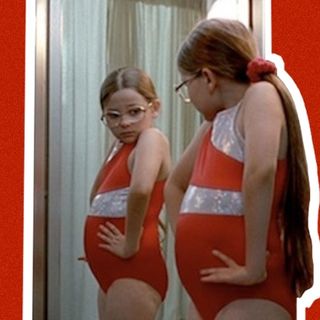
Taking More Vacations Might Help You Live Longer
Excuse us, we’ll be right back.

Vacations may be doing more than giving you fresher air. They may actually be extending your life, according to a new study.
“Don’t think having an otherwise healthy lifestyle will compensate for working too hard and not taking holidays,” says Timo Strandberg, a professor in the department of medicine at the University of Helsinki, Finland. “Vacations can be a good way to relieve stress.”
The conclusion surprised researchers, who were drawing on data from a longitudinal study known as the Helsinki Businessmen Study. The Helsinki Businessmen Study set out to examine the effects of lifestyle on cardiovascular disease risk. From 1974 to 1975, it enrolled more than 1,200 men born between 1919 and 1934. Each had at least one cardiovascular risk factor, such as high blood pressure, high cholesterol or glucose intolerance, or were smokers or overweight.
The study divided men into two equal groups — a control group, who managed their own health care, and an intervention group that actively received health advice and recommendations for medicines available at the time to treat their risk factors.
Cardiovascular risk was thus reduced by 46% in the intervention group compared to the control group. But, when researchers followed up with participants 15 years later, in 1989, they found more deaths had occurred in the intervention group than the control group. Researchers followed up again 40 years later, in 2014, with the help of death registers, and found the unexpected disparity held true up until 2004: men in the group that received health support were more likely to die prematurely than men left to their own devices.
Researchers located a small group responsible for this unexpected skewing: men in the intervention group who took three weeks or less of annual vacation were 37% more likely to die prematurely (before 2004), compared to those who took more than three weeks of annual leave. However, in the control group, vacation time had no impact on death risk.
The researchers say it wasn’t the lack of vacation, per se, but the kind of lifestyle associated with fewer holidays that contributed to the higher death rate among men in the intervention group.
“In our study, men with shorter vacations worked more and slept less than those who took longer vacations. This stressful lifestyle may have overruled any benefit of the intervention. We think the intervention itself may also have had an adverse psychological effect on these men by adding stress to their lives,” Strandberg says.
He’s unsure how much the findings apply to present day scenarios. Today, he notes, stress management is considered a critical aspect of preventative health care, especially for people at risk of cardiovascular disease. This, combined with more effective cardiovascular medications, might render any benefit of extra vacation time less stark.
But the important takeaway is — there’s a longevity benefit to taking vacation. Excuse us while we hit the beach.
Related


Why Some Teens Might Be Drawn to Suicide Challenge Games
